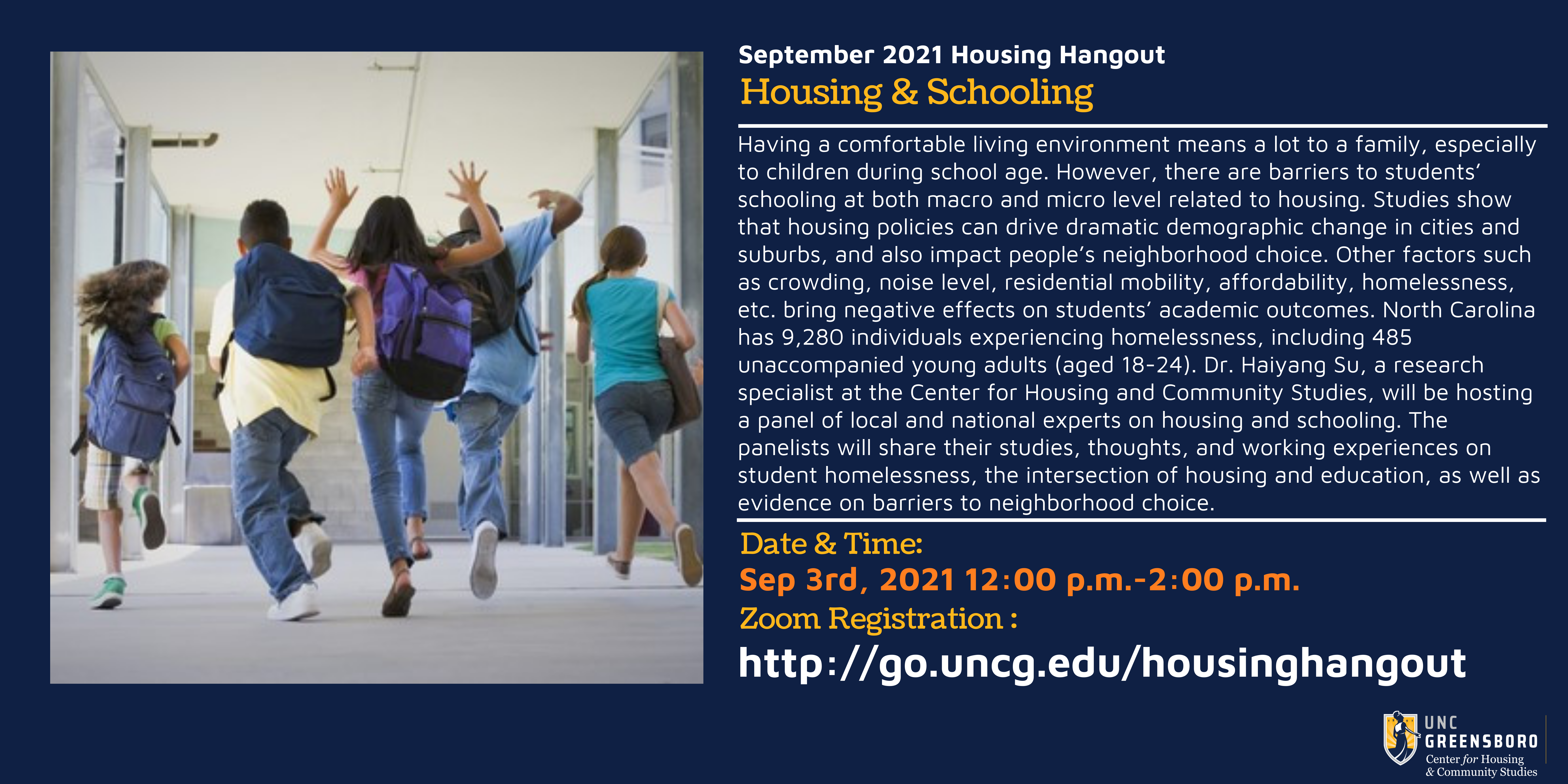Good housing is important to educational outcomes, lack of adequate housing negatively impacts children
Having a comfortable living environment means a lot to a family, especially to children during school age. However, there are barriers to students’ schooling at both macro and micro level related to housing. Studies show that housing policies can drive dramatic demographic change in cities and suburbs, and also impact people’s neighborhood choice. Other factors such as crowding, noise level, residential mobility, affordability, homelessness, etc. bring negative effects on students’ academic outcomes. North Carolina has 9,280 individuals experiencing homelessness, including 485 unaccompanied young adults (aged 18-24). Dr. Haiyang Su, a research specialist at the Center for Housing and Community Studies, will be hosting a panel of local and national experts on housing and schooling. The panelists will share their studies, thoughts, and working experiences on student homelessness, the intersection of housing and education, as well as evidence on barriers to neighborhood choice.
